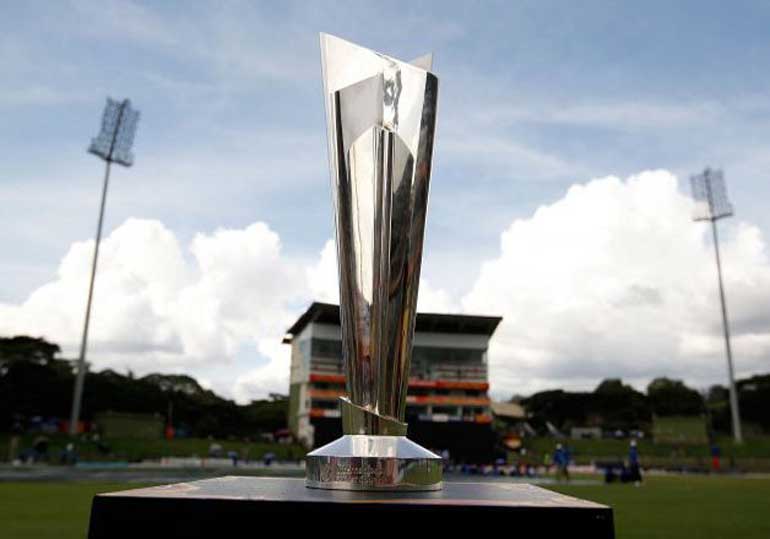Friday Feb 27, 2026
Friday Feb 27, 2026
Saturday, 20 February 2016 00:00 - - {{hitsCtrl.values.hits}}

Reuters: The Twenty20 World Cup men’s and women’s trophies reached New Delhi on Thursday (18) as part of the tournament’s host city tour.
The trophies travelled through the Indian capital in a special truck, providing people a glimpse of the awards that will be presented to the champions.
After New Delhi, the trophies will travel to all other venues where cricket matches will be played during the tournament. The host city tour had begun from India’s picturesque northern hill town of Dharamsala on 15 February.
Twenty20 series wins over Australia and Sri Lanka have given top-ranked India plenty of cause for optimism as they launch their bid for a second world crown.
India won the inaugural edition of the World Twenty20 in 2007.
The 2016 edition for men will be held from 8 March to 3 April, while women’s tournament will begin from 15 March.
Meanwhile, Indian cricketers Yuvraj Singh and Pawan Negi inaugurated ‘Team Swachh (clean) Clinic’ in New Delhi to spread awareness on benefits of using toilets.
Singh and Negi also played cricket with children who had come to see them at the Feroz Shah Kotla stadium. Besides sharing cricketing tips, both spoke about the importance of hygiene and sanitation.
The project is collaboration between International Cricket Council’s (ICC) CSR (corporate social responsibility) programme ‘Cricket for Good’ and UNICEF with the aim to bring about positive social change through the sport, and transform the lives and futures of children.
In India, it has been launched in partnership with the Board of Control for Cricket in India (BCCI).
The initiative will come into force when the ICC World Twenty20 tournament begins in March in India.
ICC in partnership with UNICEF and BCCI will conduct an eight city tour of all the world T20 host cities where they will hold wash clinics that will focus on water, sanitation and hygiene.
The clinics will be attended by former players and celebrities to inspire people to join the movement of sanitation and toilet use.
Less than a third of India’s 1.2 billion people have access to sanitation and more than 186,000 children under five die every year from diarrhoeal diseases caused by unsafe water and poor sanitation, according to the charity WaterAid.
The United Nations said in 2014 half of India’s people defecate outside – putting people at risk of cholera, diarrhoea, dysentery, hepatitis A and typhoid.